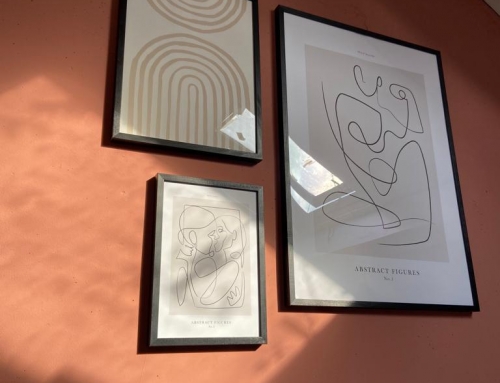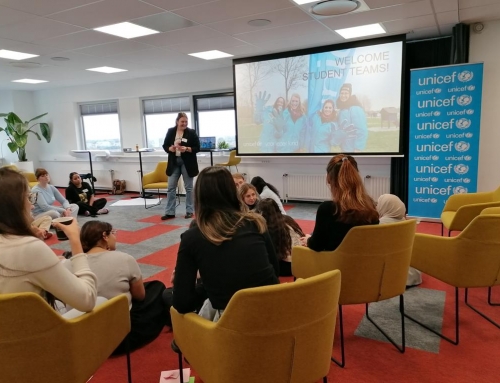Doughnut Economics: The Doughnut, or Doughnut economics, is a visual framework for sustainable development – shaped like a doughnut – combining the concept of planetary boundaries with the complementary concept of social boundaries. (Wikipedia, n.d.)
“What do you want to be when you grow up?” this question is often asked when we are younger. We often reply with “a princess or a firefighter.” As we grow older these ideas change. However, it never did for me. I always answered the question “I want to be a mother.” Even now, building a career really does not bother me like it does others. People often laugh at me, you can’t be serious. But what is so bad in wanting to be a stay at home mum? What if I enjoy cleaning, cooking and taking care of the household?
We teach children to measure success in numbers, grades and eventually the number of digits on a pay-check. As mentioned in my previous blog, this is how we try to motivate children within education to strive. Instead of letting children explore their intrinsic curiosity and creativity we condition children to adapt and be guided by external motivations instead. Why does society not experience success in terms of how meaningful and enjoyable our daily activities are?
The educational system was designed at the dawn of the Industrial Age, according to Frederick Taylor’s scientific management principles, its central tenet being standardise everything around the average, “reduce as many individuals as possible to the same safe level, to breed and train standardised citizenry, to put down dissent and originality”, (H.L.Mencken, 1924)
To simplify this, the education system therefore wants every individual to be the same, every student should get high grades so that they can later on add to the growth of the economy and be part of society. This is also what happens within the ‘nieuwkomersgroep’ we engage the students to come to the same level of every other student, putting them in a race against each other. The standardised curriculum rooted in external control aims to sort individuals into efficient workers. I can make a bridge back to my previous blog about the difference between system world and life world. The education system seems to be focused on having control of the outcomes of student’s educational development which is very system thinking. When we look at different approaches, such as the holistic and culturally responsive teaching approach we can put this in a more life thinking world.
The Industrial Age: The Industrial Age is a period of history that encompasses the changes in economic and social organization that began around 1760 in Great Britain and later in other countries, characterized chiefly by the replacement of hand tools with power-driven machines such as the power loom and the steam engine, and by the concentration of industry in large establishments. (Wikipedia, n.d.)
We no longer live in the Industrial Age, we have changed in living in the Digital age, so we need a new economy which represents the diversity of the Earth’s dynamic systems. An economy which views people as more than just consumers and workers. I want to link this back to the holistic approach of education as this is precisely what this method tries to change within the curriculum. It allows children to explore their own talents rather than extrinsically motivating them to get high grades.
The Doughnut Economics model focuses on thriving instead of growth. The doughnut shape represents the “ecologically safe and socially just space”. While growing beyond this layer implies the social inequity or jeopardising the Earth’s ecosystem. (Raworth, 2013)
According to Doughnut Economics, an economy is considered prosperous when all twelve social foundations are met without overshooting any of the nine ecological ceilings. Education is one of the social foundations here, but while the other social foundations are pretty clearly defined, it’s essential that we agree upon a definition of education as opportunity for personal growth, as access to tools and networks for fulfilling individual talents, rather than equating education to school attendance and academic credentials. (Houben, 2020)
My previous research helped me understand that the holistic approach within educational is much more beneficial for the development of third culture kids, however I am now beginning to understand that it is positive for all students across all curriculums. The doughnut economy therefore supports the theories of culturally responsive teaching and other approaches which I have previously explored.
The Netherlands has one of the harshest compulsory school attendance systems in the world. It even criminalises home schooling. (Iamxpat, n.d.) As mentioned in my previous blog, this makes it difficult for education systems to introduce the holistic approach where self- directed learning lies key and enables children to work at their own pace. This is where the complexity of the problem lies, how can we make the mind- shift within the education systems to allow them to understand that the traditional way of working is not suitable to our society anymore?
Understanding Doughnut Economics, I wonder how the current situation of Covid-19 and quarantine effects the education system and how children are thriving at home. I believe this situation allows a new chance for educational systems to come out of system thinking and start an online community using different approaches. In my next blog I will be looking at how the situation at the moment impacts third culture kids and their integration within the Netherlands.
References
Doughnut Education (2020) Retrieved 14 April 2020 from:
https://www.kateraworth.com/2020/04/08/amsterdam-city-doughnut/
Doughnut Economics (2013) Retrieved 14 April 2020 from:
https://www.kateraworth.com/doughnut/
Doughnut Economy (n.d.) Retrieved 14 April 2020 from:
https://en.wikipedia.org/wiki/Doughnut_(economic_model)
Industrial Age (n.d.) Retrieved 14 April 2020 from:
https://en.wikipedia.org/wiki/Industrial_Age
The year of wonders (2020) Retrieved 14 April 2020 from:
https://www.unschoolingfuture.net
‘The Little Red Schoolhous’ 1924 H.L Mencken





